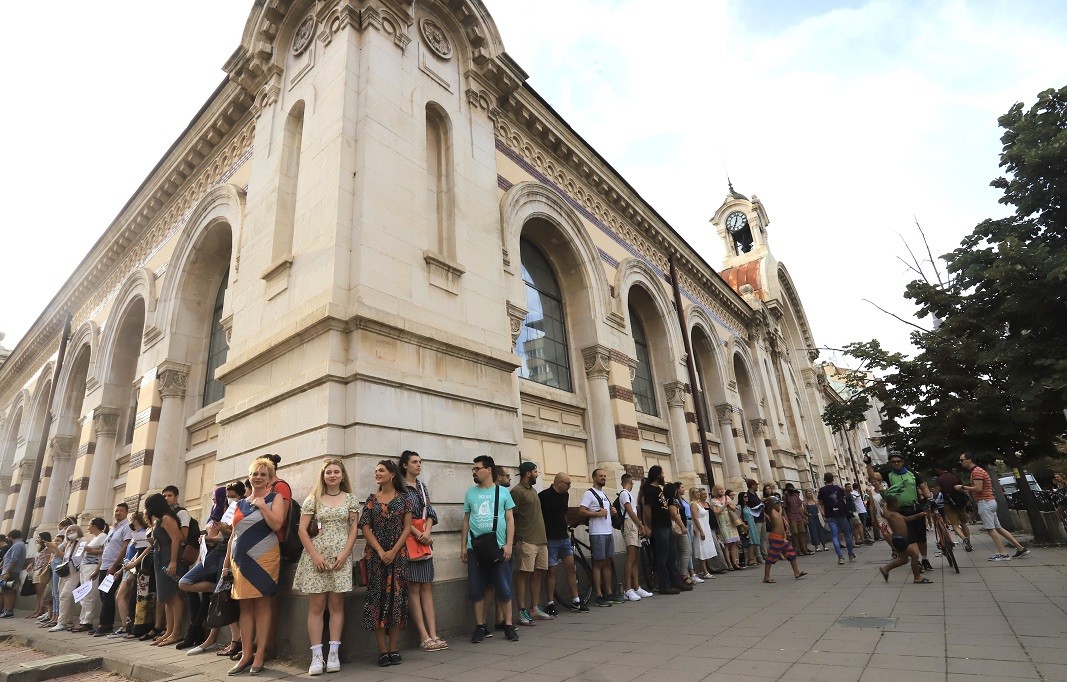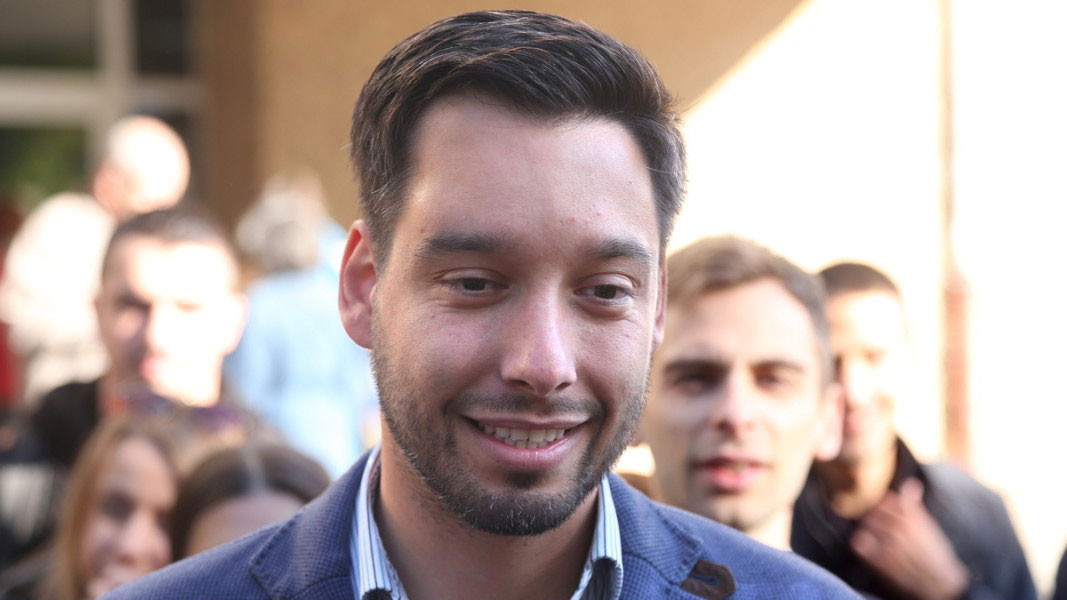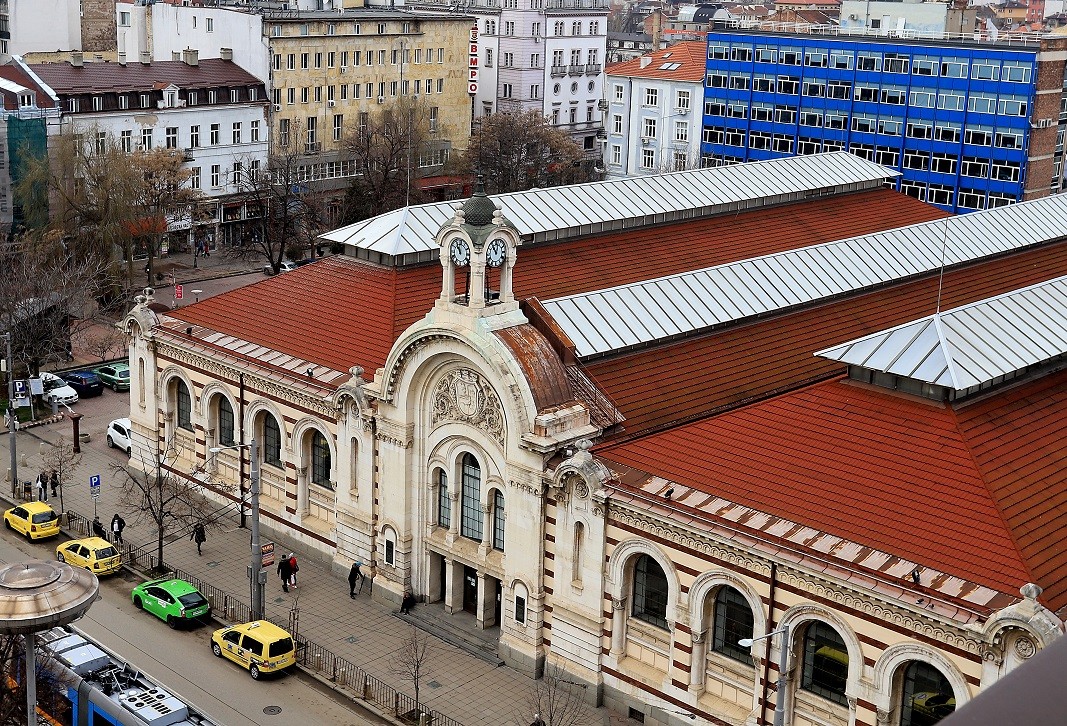Bulgaria’s modern covered market for meat, dairy products, poultry, fish and vegetables – Sofia’s Central Market Hall (Sofijski Hali) – was is the work of the architect Naum Torbov, born near the town of Bitola. He also designed the Sofia Casino Building, located once on the site of the Sofia City Art Gallery, but destroyed by the bombing of Sofia during World War II.
Since its opening in 1911, until the mid-1940s, nearly 170 shops and stalls of small traders operated in Sofia’s Central Market Hall. The facade of the building, located in the heart of the capital city, on the corner between Maria Luisa Blvd. and Ekzarh Yosif St., attracts attention due to the architectural similarities with the Central Mineral Bath located on the opposite side of the street, part of which now houses the Regional History Museum of Sofia. Precisely because of its remarkable architecture, Sofia’s Central Market Hall received the status of a cultural monument of national importance in 1955.

The building, a symbol of the capital to this day, has retained the purpose for which it was built, even after its sale to a private company in the beginning of the 21st century. Nearly 20 years later, however, its future is in jeopardy. The reason – the owner company has sold the property to a German retail chain, which plans to open its own supermarket in it. The intentions became public by chance, after the buyer announced its intentions in a project which was submitted for approval to the National Institute for Immovable Cultural Heritage. The case was announced by the independent municipal councilor Boris Bonev, a representative of the civil non-governmental organization Save Sofia (Spasi Sofia). The association organized a protest forming a human chain in front of the building, requesting that the project for its reconstruction be published and put up for public discussion.
After a meeting of Boris Bonev with the Minister of Culture Velislav Minekov, it became clear that the ministry has no authority to intervene, as the Central Market Hall is private property. However, this does not revoke the fact that the building is a cultural monument of national importance, Bonev explains in an interview with Radio Bulgaria:

"When a building is given a similar protection status, it means that its owners, even if private, cannot do whatever they want. Both the recommendations of the experts and the public opinion must be taken into account. To say that a building is a cultural monument of national importance means that it already belongs, although not by a notary deed, to the whole society."
The resale cannot be stopped, as it is formally legal, but the possibilities for preserving the Central Market Hall with its authentic appearance and purpose are not exhausted, the defenders of the architectural landmark firmly believe:
"The Sofia municipality and the state must make efforts to buy the property of this building,” Boris Bonev insists. “If the project of the retail chain is not implemented due to non-compliance with the regulations for preservation of internal and external architecture, then in order for the building to become a trade hub again, it is logical for the state and the municipality to intervene. However, it is no coincidence that the coat of arms of Sofia stands at its entrance, and not the coat of arms of the retail chain or the owner," the Sofia municipal councilor recalls.

A third possibility is not ruled out - a dialogue between the current owners, the municipality, the state and representatives of the retail chain, where an agreement can be reached to develop a new business plan for its future.
Whether the public will prevail over the private interest and how the life of one of the symbols of the city will continue remains to be seen.
English version Rositsa Petkova
Photos: Ani Petrova and BGNESModernizing critical thinking skills, fact-checking skills and media literacy are essential for society, especially for young people in Bulgaria - the country with one of the lowest media literacy indices in the EU, reports the educational platform..
The residents of Pleven (Central North Bulgaria) will bid farewell to 2024 with a Christmas Town and meetings with Santa Claus. This year's festive program of the local municipality will start on December 2 with the Christmas tree lighting ceremony at..
An innovation for the treatment of diabetic foot ulcer using the patient's own tissue and artificial intelligence has been implemented at the University Multi-profile Hospital for Active Treatment-Burgas. Bulgaria is the fourth European country to start..
An innovation for the treatment of diabetic foot ulcer using the patient's own tissue and artificial intelligence has been implemented at the University..
The residents of Pleven (Central North Bulgaria) will bid farewell to 2024 with a Christmas Town and meetings with Santa Claus. This year's festive..
Modernizing critical thinking skills, fact-checking skills and media literacy are essential for society, especially for young people in Bulgaria - the..

+359 2 9336 661
